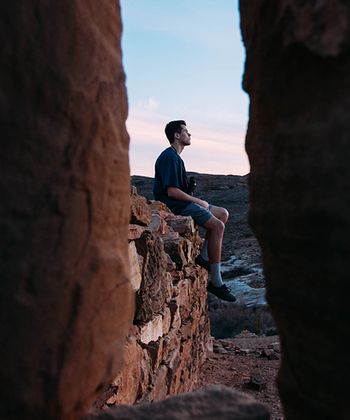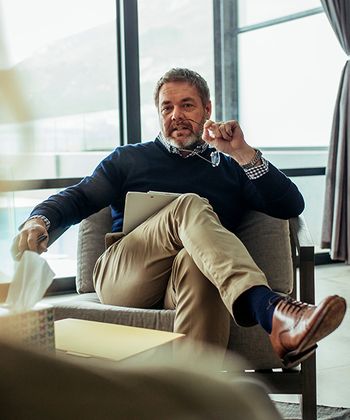Specifically knowing how to break things down into smaller parts, organizing my thoughts and feelings; a BIG thing was learning how to sit with people and empathize with them, without taking on their pains, stresses, etc. I also learned some awesome bike maintenance skills! OH, the three key principles too! Grit, growth, and compassion! I think I have learned to push through the tough things.
Looking back, Josh (Miller) was the best therapist I’ve ever had – and I’ve had a lot of them.
CH: What have been some of the most difficult challenges since leaving Kaizen?
KG: Controlling my urges was a big challenge – it’s tough to see how well you do when you’re limited – in the structure of the program, staff all around you, etc. I’ve realized that my struggles don’t define me. You may deal with difficult stuff, but that doesn’t make you a bad person.
CH: What have been some of the most rewarding successes?
KG: I realize I can actually do it – be successful. Looking back, seeing the hard road I’ve had to travel makes me realize I’m stronger than I thought. Sometimes we have to do things we don’t really want to do, but they’re good for us, and I’ve been able to do it. It’s empowering.
CH: How – if at all – has your relationship with your parents/family changed because of the work at Kaizen?
KG: 100% better! I wouldn’t be anywhere NEAR as close to them as I am now. The way family therapy was structured was super helpful; we also had a lot of opportunities to be together, practice how to be together in healthy ways. I had to get to the point where I realized how much of a support and resource my parents are (emotionally, everything) – that came from our work together at Kaizen.
Family and true friends are supposed to make you BE better, not just feel better.
CH: What advice would you give to students who are currently at Kaizen?
KG: Take the leap. The sooner you really start, the more you’ll get out of it. Trust the process, and trust the people working with you. Take advantage of ALL the resources!!
CH: What’s in your future? What are some of your next steps?
KG: By next year, get into college – aviation!! I actually got excited about aviation from a Kaizen staff. He taught us a lot about the science of it, we had simulators at Kaizen, and his passion was contagious.
CH: What would you say to a parent who is considering Kaizen for their son?
KG: First, I’d thank the parents for their courage – it’s gotta be tough to send your child away to treatment. Then, I’d talk about the general run-down of the program. I’d encourage them to have an open heart and open mind. There may be some unpleasant disclosures, but there is a light at the end of the tunnel! There are a lot of success stories!
I consider myself a success story, even though it hasn’t always been easy since I’ve left. I can honestly say I have no regrets for going to Kaizen. I regret that my behavior made me lose time with my family, but I feel like I gained it all back, plus a lot more!






